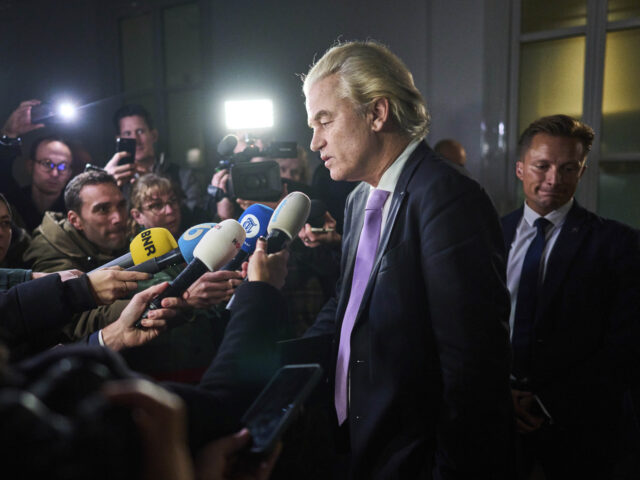The Dutchman must be the first priority for the Dutch government, says populist leader Geert Wilders, as he decries ringfenced spending for Ukraine and the climate that could stop him cutting taxes to put more money in the voter’s pocket as he wishes.
“I want us to finally put the Dutch first,” says populist leader and power behind the throne of the Dutch government Geert Wilders, as discussions get underway for the Spring budget.
The Dutch government that followed the 2023 electoral victory of Mr Wilders and his Party for Freedom is a coalition of four parties, which, beyond his own, includes the centre-right establishment-conservative VVD, the pro-political reform NSC, and the pro-agriculture BBB. While most coalition members agree now is the time to cut taxes, the VVD — who control the finance ministry — are opposed.
As stated by Dutch newspaper Algemeen Dagblad, the establishment VVD party acknowledges that the national budget is presently balanced but preaches fiscal probity now because there’s a possibility they may not be in the future. The party also stands by its commitment to protect government spending on the Ukraine War and climate change.
These “left-liberal” obsessions are standing in the way of the government doing something good for its own people, Wilders blasted this week. Wanting to cut taxes to compensate taxpayers for soaring inflation — energy taxes are particularly in his sights, it is stated — Wilders took to social media on Wednesday to declare: “I want us to finally put the Dutch first. Many are struggling, life is getting more expensive. Helping people is our priority over extra billions for left-liberal hobbies like climate!”
“I’m done with it”, he stated, saying it was time for “extra money for the wallet instead of even more money for climate and Ukraine.”
The priority of the government should be its citizens, he said, stating it is wrong to “leave the Dutch out in the cold” while spending money on Ukraine. According to a December report, the Netherlands — a country of 18 million — is giving in the region of $10 billion in support to Ukraine.
There are weeks left yet before decisions are to be taken for the Spring compact, but such a faultline in the Dutch coalition risks instability. If the PVV walks away from the government, the remaining parties would not have enough votes in Parliament to pass bills, opening the door to a potential left-wing coalition or fresh elections.
While Wilders’ populists continue to enjoy a healthy lead in national polling, the latest results put them as having fallen from a recent high of commanding nearly half of support in the country, making a snap election a less appealing prospect. Nevertheless, the party is still polling around as well as its performance in the 2023 national elections in the high 30s, even if its coalition partner, the NSC, has been in freefall ever since, meaning building another governing coalition could be difficult.

COMMENTS
Please let us know if you're having issues with commenting.